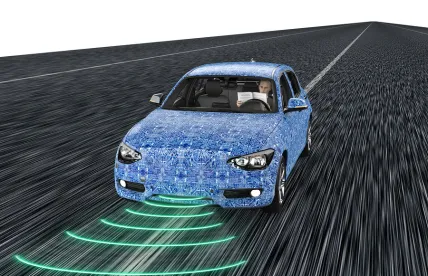While developers of autonomous vehicles have not always had welcome news from the California DMV, they recently received some helpful clarity on the regulations applicable to autonomous vehicle testing on California public roads.
The DMV’s revised proposed regulations permit companies to, among other things, test vehicles without having a driver in the car, a change from past proposed rules. Manufacturers must apply to be allowed to conduct driverless tests; part of that application process will be to notify local authorities of when and where such testing will take place, and to set up a law enforcement interaction plan, which will inform local law enforcement and other first responders on how to safely interact with driverless cars in the event of an accident or emergency.
The regulations also provide for applications for deployment of autonomous vehicles on California roads by end-users, including vehicles that do not require drivers to operate. Among other things, the application will require consumer education plans, for the manufacturer to explain to end users the autonomous technology (and its limitations and mechanisms for engagement and disengagement), and law enforcement interaction plans much like the ones required for testing. The California DMV retains discretion to approve these applications if it is satisfied with the manufacturer’s testing for safety on public roads. Other provisions include review processes for denial of these applications; circumstances in which granted applications can be suspended or revoked; and required disclosures to consumers about how their personal information will be gathered and used.
As the California DMV is taking these steps, though, Congress is moving ahead with its own legislation. The House of Representatives recently passed the SELF-DRIVE Act regarding autonomous vehicle technology; the Senate’s own measure, the AV START Act, has advanced out of committee and will likely be voted on by Senate in the near future. Among other things, the AV START act would expressly preempt state laws regarding “the design, construction, or performance of highly automated vehicles, automated driving systems, or components of automated driving systems” unless the state standards tracked the federal standards. These bills, if passed and signed into law, would give NHTSA the task of setting safety standards for autonomous vehicles, supplementing existing requirements that are based on the assumption that a driver is performing driving tasks at all times—and until those standards are issued, it is hard to say what exactly will be required of manufacturers.
While federal action may ultimately narrow the impact of the new California DMV regulations, those state regulations are likely to provide concrete guidance for testing before federal standards take effect, and do so in a state that will be a hotbed for testing and development of autonomous vehicles. The California DMV is accepting public comments on the revised proposed regulations through October 25, 2017.



 />i
/>i

